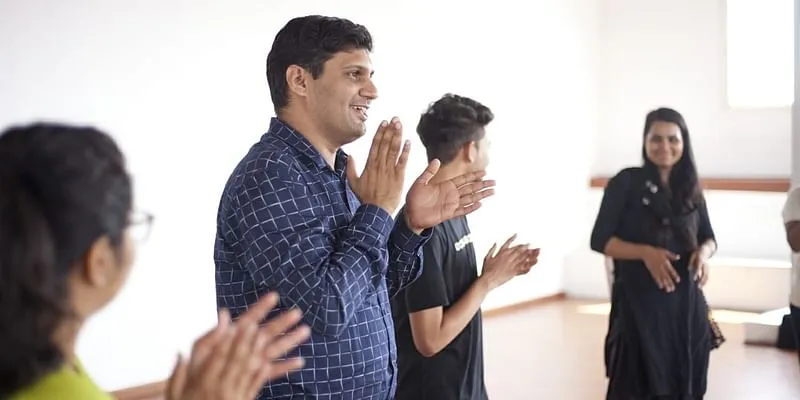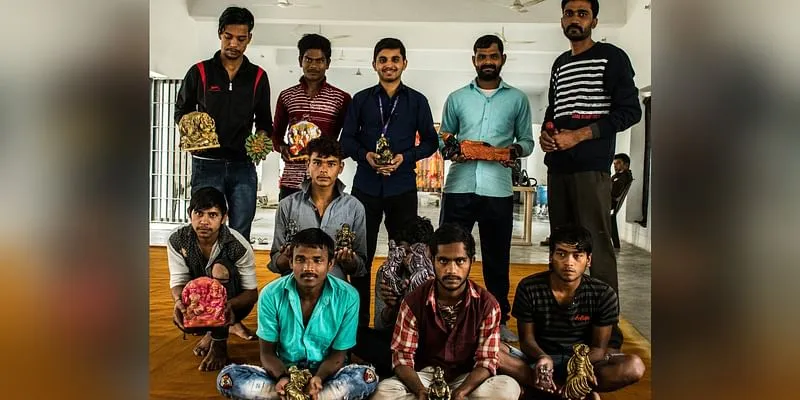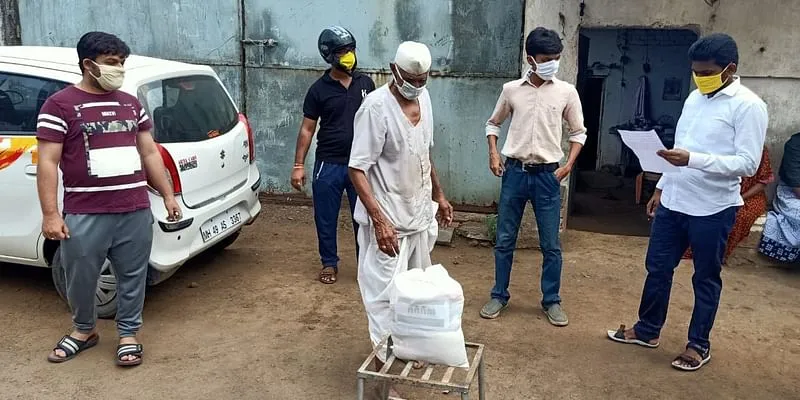These young changemakers are innovating and doing their bit amid coronavirus lockdown
Supported by Ashoka Innovators for the Public, young changemakers are helping frontline workers, ensuring menstrual hygiene, and providing food supplies despite restrictions amid the coronavirus lockdown.
To many, the coronavirus crisis brings back memories of the 2008 financial crisis when not only many were laid off, but those climbing the first step of their career ladders found themselves unable to do so.
The coronavirus pandemic is proving to be a great disruptor, affecting the prospects of many young professionals who are just starting out.
But the economic worries have not scared away some young social innovators from doing their bit for the community.

Yashveer Singh, Global Executive Director, Ashoka Young Changemakers
Supported by Ashoka Innovators for the Public, an international organisation established in 1980 that promotes social entrepreneurship in 92 countries, these young changemakers refuse to be deterred by the lockdown, and have converted a health crisis into an opportunity to do social good.
Working with inmates to make masks
Akash Singh works with inmates at Gautam Budh Nagar Jail and trains them to make statues from temple waste. However, his social venture had to pivot as inflow of temple waste reduced due to closure of religious places. He then introduced mask-making in the premises of 64 jails across Uttar Pradesh. Around 2,000 masks are produced each day, and collected and distributed by the government and NGOs.
Yashveer Singh, Global Executive Director, Ashoka Young Changemakers, tells SocialStory that such a drive to influence the system by coordinating with government authorities in districts, involving stakeholders, and having weekly Zoom calls with stakeholders makes Akash a changemaker, who not only found a way to work around a crisis, but also serves as a role model for people he is working with.

Akash Singh
“Imagine Akash inspiring his entire district into thinking that ‘can I problem-solve?’ The skills that Akash will build in inspiring them will help him later on in his career,” Yashveer says.
Akash is also working on a cost-effective face shield that can be used by all frontline workers. A prototype has been sent to ATAL Incubation Centre and will be made available for Rs 300 per piece.
Ensuring menstrual hygiene
Another young social innovator is Sanjana Dixit, who has been working to provide access to essential products to ensure menstrual hygiene for people from marginalised communities.
Her social venture, Rutu Chakra, has connected with several menstrual product manufacturers, as well as organisations working in and around Bengaluru, to facilitate the delivery of around 45,000 sanitary pads.
As supply chains came to a grinding halt during the lockdown, she worked to find different vendors and organisations and ensure access to quality and safe menstrual products. She has helped 3,000 women and girls so far.

Sanjana Dixit
She was provided with Ashoka’s network so that she could carry out with her task. Ashoka Young Changemakers supports youngsters by enabling them to be role models in their communities and giving them the requisite skills for core leadership.
“Social entrepreneurs have a particular mindset to make change happen because of how they’ve been growing up. As Leon Megginson said, ‘It is not the most intellectual of the species that survive, it is not the strongest also that survive, but the species that survive are the ones who can adapt to a changing environment’,” Yashveer says.
Supplying ration kits
Another example is of Wasudev Mishra, who worked with Nagpur Police and Nagpur Municipal Corporation to ensure the supply of food and ration kits in and around the city. Through an app, 30 organisations have distributed 3,500 ration kits in underserved areas.
He also created a website to disseminate accurate and reliable information pertaining to precautionary measures and the process to avail ration kits.
His social venture, Silaigram, works with daily-wage workers, who have been hit the hardest due to the lockdown, and provides livelihood to 25 women, who have manufactured 5,000 reusable masks from upcycled cotton fibre.

Wasudev Mishra
Yashveer says such problem-solving skills need to be honed at a young age. However, many also face resistance from families.
“The biggest challenge I see currently in our society, or at least in my life, is that while growing up parents say that you cannot do some things. And those things are in service of the community. They would tell you to go back to your room and study. So, while growing up you learn to think for yourself and when you grow up, you are asked to think of society. How can that happen?”
Ashoka helps calms parents by conducting workshops, revealing information about other teenagers carrying out such initiatives, and focusing on how becoming a role model will help their children better their problem-solving skills.
Opportunities abound
Yashveer adds that while COVID-19 has disrupted existing norms, it has also created abundant opportunities for new role models to emerge. This, he says, is where empathy as a skill needs to be developed so that the youth knows what the situation actually demands and quickly adapts.
“On a macro-economic level, jobs will be lost. But this will create the next Amuls of the world, with a new business model etc. It will force young people to move towards a healthier, more cohesive, and happier society,” Yashveer says.
(Edited by Teja Lele Desai)










